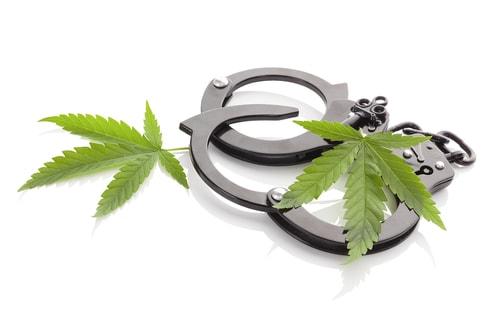 California was the first state in the U.S. to legalize the use of medical marijuana. In the two decades since, another 30 states have followed suit. Another 15 states have legalized medical cannabis products with limited THC content. In addition, nine states plus Washington, D.C. have legalized the recreational use of marijuana.
California was the first state in the U.S. to legalize the use of medical marijuana. In the two decades since, another 30 states have followed suit. Another 15 states have legalized medical cannabis products with limited THC content. In addition, nine states plus Washington, D.C. have legalized the recreational use of marijuana.
Recent opinion polls conducted by the Pew Research Center and Quinnipiac University show that public support for the legalization of recreational marijuana is now at an all-time high. Between 61 and 63 percent of American voters are reportedly in favor of legalizing recreational use for adults while just 33 to 37 percent are opposed. The main problem, however, is the prohibition of cannabis that still exists at the federal level, leading many to see parallels between the government’s approach to marijuana and the ban on alcohol that largely defined the 1920s.
By the end of the 19th century, a growing movement in the United States railed against the evils of alcohol. Led mostly by religious organizations, the effort blamed the problems of society—such as crime and poverty—on drinking and drunkenness. Anti-alcohol groups succeeded, at first, in getting local laws passed to limit the production and sale of alcoholic beverages. In 1920, the U.S. ratified the 18th Amendment to the Constitution, which made it illegal to produce, transport, or sell liquor.
Prohibition was notoriously difficult to enforce, and in fact, the attempts to do so created additional problems instead of solving them. Organized crime became involved in the black market alcohol trade, giving rise to some of the most famous criminals in American history. In short, Prohibition was a failure. Just 13 years after it began, Prohibition ended when the 21st Amendment repealed the 18th Amendment.
Under the federal Controlled Substance Act, marijuana is still classified as a Schedule I drug, which means that there are no accepted medical uses and there is a high potential for abuse. The passage of medical-use programs in so many states certainly challenges the first point. As a result, the Obama administration directed the Department of Justice not to spend federal resources prosecuting people who used or sold medical marijuana in compliance with applicable state laws.
President Donald Trump’s administration has rescinded Obama’s directions, promising a federal legislative answer to the question of states’ rights on the matter. To many, however, it seems inevitable that the end is coming for the federal prohibition of marijuana. Tax revenues have soared in states where recreational use has been legalized—far exceeding the taxes collected on alcohol sales in some cases. Many experts believe that the available revenues will eventually win out and the federal government will make the changes necessary for it to claim a share of the money.
Regardless of whatever changes may lie ahead, the possession of more than a half-ounce of marijuana is currently a crime under Connecticut law. If you are facing charges related to the possession, manufacture, or delivery of marijuana, contact a Connecticut criminal defense attorney. Call 860-290-8690 for a free, confidential consultation today.
Sources:
https://www.law.com/ctlawtribune/2018/08/27/prohibition-and-the-future-of-marijuana-in-connecticut/
https://www.history.com/topics/18th-and-21st-amendments
https://www.visitconnecticut.com/state/marijuana-in-connecticut/
 50 Founders Plaza
50 Founders Plaza

